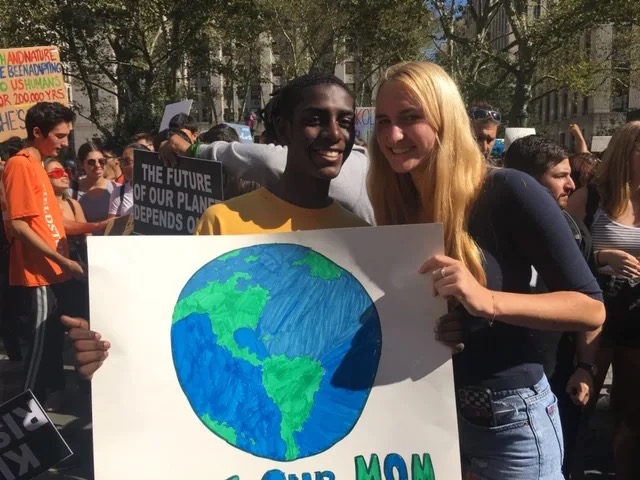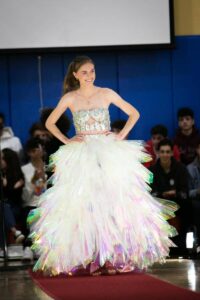Emma V. ’20 looked around the crowd gathered in the Stu-Fac — fellow environmental club leaders and over a dozen faculty and staff who met after school to discuss the Ethical Culture Fieldston School’s plan for the Global Climate Strike. She asked, “What will we do to address the global narrative that is climate change?”
They were planning participation in a global movement, and perhaps its most visible leader is the young activist Greta Thunberg, who has become the face of the youth action. Thunberg encouraged students around the world to strike from school on Friday, September 20, to make their voices heard as the generation that won’t stay silent while the earth suffers irreparable damage.
The Friday following the Stu-Fac meeting, millions of people gathered around the globe — including at least 60,000 protesters in downtown Manhattan — to draw attention to the global threat of climate change and to protest government inaction against this growing threat.
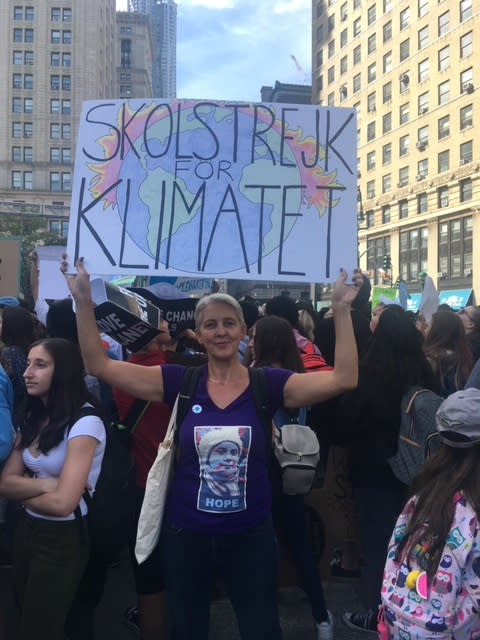
In the weeks leading up to the march, Ethical Culture Fieldston School administration grappled with how best to engage with the action. Palma Repole, Fieldston Upper School Science and Ethics Teacher, first approached fellow Fieldston Upper School Science Teacher Howie Waldman with an idea: not only would students and teachers be permitted to attend the Climate Strike in Foley Square, but those who preferred to stay on campus would attend special programming designed to highlight both the dangers of and the actions we can take against climate change.
“We have the imperative to educate the larger community,” Repole said during the planning meeting.
The Tuesday before the Climate Strike, students gathered in the Student Commons to make signs for the march. Using only recycled classroom materials — old trifold presentations, scrap paper, and cardboard boxes — students worked diligently, while keeping the mood light and fun. As they sketched block letters spelling out phrases like “Make Earth Cool Again,” and “The Dinos Didn’t See It Coming, What Will Our Excuse Be?”, music played on the speakers (The Beatles’ “Here Comes the Sun” and other Earth-themed songs), and photos of previous climate marches flashed on the projector. Students held out their finished signs for approval and offered compliments on each other’s work. The energy for the coming march mounted, and students decorated the Fieldston Upper School hallways with their posters to bring the spirit of change to campus.
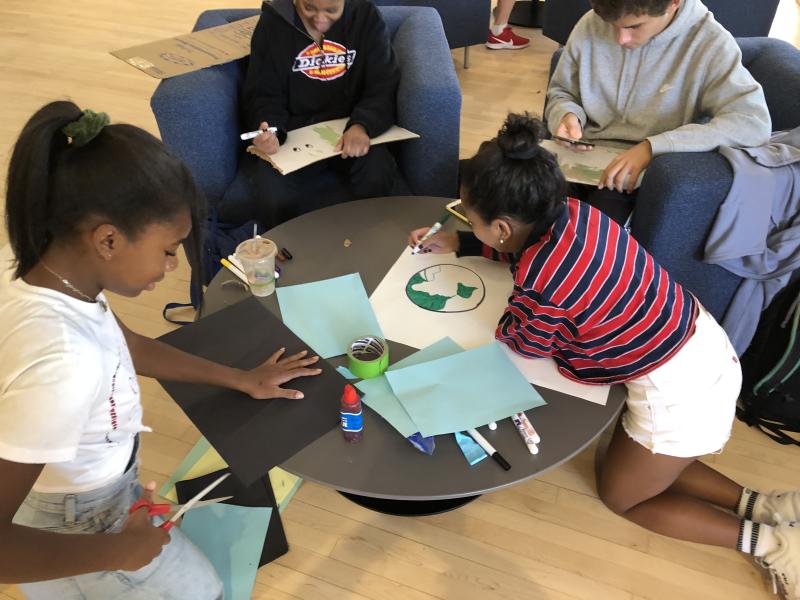
By all measures, the march itself was a huge success. Over 300 students attended, making ECFS one of the largest contingents of any school at the march.
“Fieldston students made great signs, they gave substantive interviews to the many news organizations floating within the crowd, and, often, they led the chanting,” Waldman told our community following the march.
On campus, the discussion was global. “How can we focus on stories happening around the world and not just in the United States? The fire in the Amazon, for example,” Spanish Teacher Lorena Rodas-Ramirez had asked at the planning meeting in Stu-Fac. “Immigrants fleeing towards the border flee because of climate change — the droughts in Guatemala, or endless rain that destroys corn,” she continued.
Students and faculty spent the morning watching documentaries, including “Cowspiracy” and “Racing to Extinction,” covering a range of topics from the perils of factory farming to the violent clash of indigenous peoples with the Peruvian government over land in the Amazon.
Discussions took place afterwards, and students were tasked with thinking about how the film they watched connects to their own lives, and what kinds of actions they can take to combat the global force that is climate change.
After lunch, faculty led various activism workshops, including an environmental Shark Tank, where students presented inventions designed to combat the climate crisis, a crash course in debating climate change deniers, a phone call campaign to political leaders, and a brainstorming session on making the ECFS campus more sustainable. Fieldston Middle School participated in the day as well, offering a Town Hall presentation for students on climate change and hosting discussions in science classes.
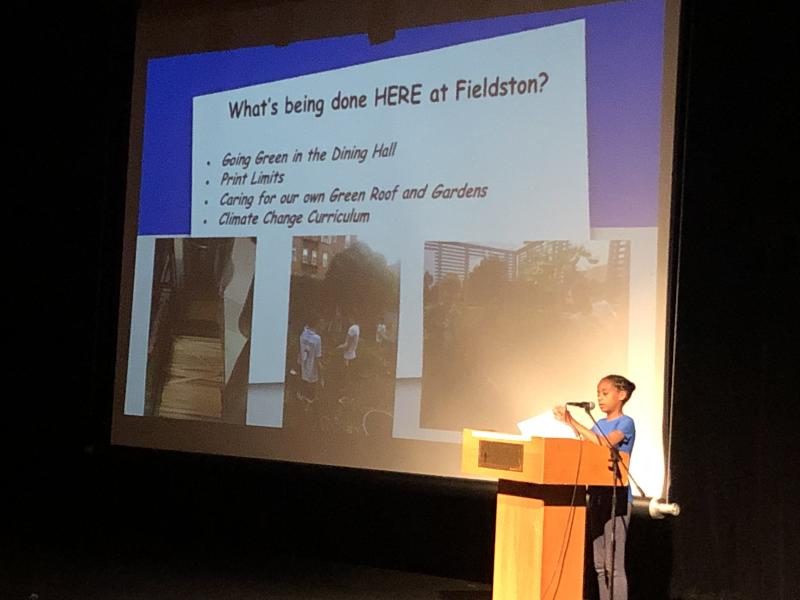
Whether marching in downtown Manhattan or participating in the discussions and workshops on campus, ECFS students and faculty voices were at the forefront of the activism. “I see the possibility in their actions for positive and rational change around climate policy, and a healthier, safer, and more just future for all young people — worldwide,” said Waldman.
Events such as the Climate Strike represent critical opportunities to take a stand and raise one’s voice. Just as vital are quieter, more subdued moments of action — cancelling classes to host discussions on sustainability, for example. The Ethical Culture Fieldston School mission demands that we not only do the work of marching, of showing up and filling the streets, but also empower through education.
Felix Adler, founder of the Ethical Culture Fieldston School, once said, “The ideal of the School is not the adaptation of the individual to the existing social environment; it is to develop individuals who are competent to change their environment to greater conformity with moral ideals.” Friday, September 20, was a celebration of this idea, and an ode to our founder’s memory. Students, faculty, and staff at ECFS do not simply adhere to the status quo. When the stakes are high and the future is on the line, they won’t back down.
